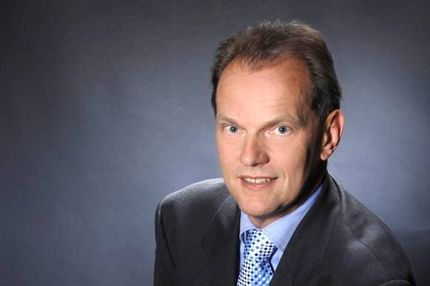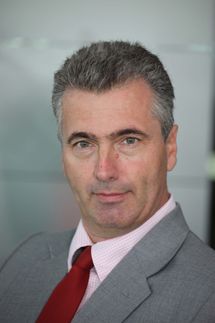SCHOTT achieves operating plus in 2002/2003
Emphasis on reorganization of global company group
Advertisement
Change will continue to be an important aspect for the SCHOTT international technology group in the current 2003/2004 fiscal year (to Sept. 30). At the group's annual results press conference in Frankfurt am Main on February 17, 2004 the new Chairman of the Board of Management Dr. Udo Ungeheuer indicated that structural reorganization was to be speeded up. He referred in this connection to the "biggest modernization process in the corporation's history" ever. The objective of the measures that have been introduced is to improve international competitiveness and to create the prerequisites for a stable growth in sales and profits.
For 2003/2004 the group expects moderately positive business progress. In the first four months of the fiscal year order intake was up on the figure for the previous year with sales at the previous year's level. But there are still no clear signs of growth from important customer groups such as telecommunications and the semiconductor industry. In addition to this there are unfavorable euro/dollar and euro/yen exchange rates to be taken into account.
The current business situation is marked by a widely varying picture in individual industries and regions.
In the "Home Tech" Strategic Business Unit "Ceran" glass-ceramic cooktops and processed flat glass products are continuing their growth pattern. In particular the good development in the important Japan and China markets is very encouraging. Even thirty years after Ceran® was first launched, SCHOTT is continuing to demonstrate high potential for innovation with Ceran Suprema®. Thanks to a new material composition up to 16% faster boil-up times can be achieved.
The "Electronics" strategic business unit is still not in a position to record any sweeping recovery in components for the telecommunications and semiconductor industry. By contrast there is good demand in the case of electronic packaging components for automotive and consumer electronics and also for fiber optic components for automobile lighting. The classical television glass business continues to be marked by severe pressure on prices and far-reaching structural change towards flat screens using display glass. There has been a successful start-up for the manufacture of high-precision cut tubing for microdiodes at the Suzhou works in China.
In the "Advanced Optical Materials and Components" strategic business unit a major order from an electronics group in Asia in particular is ensuring that capacity for Zerodur® glass-ceramic is being well utilized. This material with its zero thermal expansion is a key component in the LCD lithography growth sector. Demand for materials for the semiconductor industry continues to be unsatisfactory.
In the "Pharmaceutical Systems" strategic business unit ampoules and vials for the pharmaceutical industry are showing stable demand. SCHOTT sees a great market potential for syringes which - in compliance with customers' requirements - can be manufactured from either special glass or plastic.
The new "Solar" strategic business unit brings together the group's activities in photovoltaics and solar heating technology. In the case of photovoltaics SCHOTT is recording a good demand, but is faced with massive competitive pressure from Japanese suppliers as a result of the weak yen.
In the 2002/2003 fiscal year SCHOTT was not able to escape the effects of the weak overall business situation. Worldwide sales stagnated at 1.95 billion euros with the share of business outside Germany falling from 79% to 76%. The profits from normal business activities were 34 million euros. However, said Chief Financial Officer Klaus Rübenthaler at the annual results press conference, special future-proofing measures in particular contributed to a group net loss after taxes of 75 million euros. In the previous year a 60 million euro surplus had been achieved. The restructuring measures involve in the first place the transfer already announced of television glass production from SCHOTT GLAS, Mainz, to STV Glass in the Czech Republic and the closing-down of special glass tubing production at the American subsidiary company SCHOTT Scientific Glass Inc. of Parkersburg. The US market will be supplied from other facilities.
In the fiscal year under review EBITDA was 201 million euros, in the previous year it was 283 million. At 196 million euros investment in tangible assets remained at the previous year's level. SCHOTT's equity ratio remains satisfactory at 30% (previous year 34%). The SCHOTT Group's solid finance structure provides the basis for the tasks ahead. On the balance sheet date the SCHOTT Group employed 19,350 people, just under half of these being in Germany.
The further reorganization of the group will concentrate essentially on three areas: Consolidation with a view to increasing profitability. This includes for example the recent sale of the group accounting center. Another of the measures is the transfer of production to facilities with a more favorable cost structure plus a greater geographical proximity to their customers. In the case of service functions such as Purchasing and Personnel there are plans to improve structures and processes with a view to further increasing efficiency.
Setting up of businesses in growth markets. Here the focus is on a strengthened presence for SCHOTT in Asia, above all in the People's Republic of China. The technology concern also sees some highly promising prospects in a number of high-tech fields: photovoltaics, solar heating technology, thin glass for large format TFT displays (in Jena SCHOTT has recently brought on stream Europe's most advanced float plant for high quality thin glass), coating technologies for adding value to glass and plastic components plus glass-ceramics for LCD technology.
Another move to pursue the further development of the group is the legal transformation of SCHOTT GLAS into a joint stock corporation. The Carl-Zeiss-Stiftung will hold all the stock of SCHOTT GLAS AG. Stock exchange listing is thus excluded.
Chairman of the Board of Management Dr. Ungeheuer emphasized to the press in Frankfurt that SCHOTT had the potential to successfully cope with the far-reaching process of change. He indicated that he was also confident about the current fiscal year. "We have the opportunity, in spite of difficult background conditions, to return to a positive group profit".


























































